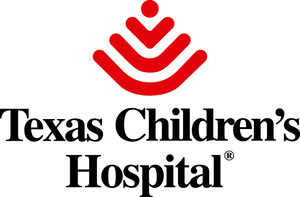Texas Children's Hospital Study Finds That, for Obese Children, Less Is More When it Comes to Initiating General Anesthesia
HOUSTON, Oct. 18, 2011 /PRNewswire-USNewswire/ -- A study presented at the American Society of Anesthesiology's ANESTHESIOLOGY 2011 meeting on Saturday found that obese children required much smaller doses of the anesthetic propofol than non-obese children to bring about a safe level of unconsciousness.
(Photo: http://photos.prnewswire.com/prnh/20111018/DC88224)
Since the commonly used drug propofol can cause low blood pressure, prolonged sleepiness and decreased breathing, the results of this study could help anesthesiologists safely treat a common, but often misunderstood, type of surgical patient.
"Little information is available to assist anesthesiologists in deciding the right amount of medication to give to an obese child," said Olutoyin A. Olutoye, M.D., anesthesiologist at Texas Children's Hospital and lead author of the study. "Companies making these medications do not specifically study medication effects in this group of children before releasing a drug for use."
It is important for anesthesiologists to decide whether anesthetic drug doses should be based on a child's actual weight or lean body weight. In obese children, 75 percent of excess body weight consists of fat tissue, which alters drug distribution.
"It is known that obese adults often need a smaller dose of propofol than normal weight adults, but a correlation to children is not guaranteed since adults and kids handle medications differently," said Dr. Olutoye, an associate professor of anesthesiology and pediatrics at Baylor College of Medicine.
Using a process called the biased coin design, which requires fewer patients and provides more accurate calculation of dose requirements than older techniques, 40 obese and 40 non-obese children all patients at Texas Children's Hospital were studied.
After measuring each child's response 20 seconds after receiving propofol, it was determined that obese children needed 2 mg/kg of propofol based on actual body weight, to bring about unconsciousness at the beginning of surgery, compared to normal weight children who needed 50-60 percent more propofol (3.2mg/kg).
"These study findings mean that when providing care for obese children with propofol, 95 percent of children will likely need only a smaller dose of propofol to initiate anesthesia for surgical procedures," said Dr. Olutoye. "This is important as propofol may cause low blood pressure, an effect that can be worsened if larger-than-needed amounts are given."
Dr. Olutoye stated that further pediatric studies will be needed to learn if there are other differences in medication responses for obese and non-obese children in clinical practice.
About Texas Children's Hospital
Texas Children's Hospital, a not-for-profit organization, is committed to creating a community of healthy children through excellence in patient care, education and research. Consistently ranked among the top children's hospitals in the nation, Texas Children's has recognized Centers of Excellence in multiple pediatric subspecialties including the Cancer and Heart Centers, and operates the largest primary pediatric care network in the country. Texas Children's is completing a $1.5 billion expansion, which includes the Jan and Dan Duncan Neurological Research Institute; Texas Children's Pavilion for Women, a comprehensive obstetrics/gynecology facility focusing on high-risk births; and Texas Children's Hospital West Campus, a community hospital in suburban West Houston. For more information on Texas Children's, go to www.texaschildrens.org. Get the latest news from Texas Children's by visiting the online newsroom and on Twitter at twitter.com/texaschildrens.
The American Society of Anesthesiologists
Anesthesiologists: Physicians providing the lifeline of modern medicine. Founded in 1905, the American Society of Anesthesiologists is an educational, research and scientific association with 45,000 members organized to raise and maintain the standards of the medical practice of anesthesiology and improve the care of the patient.
For more information on the field of anesthesiology, visit the American Society of Anesthesiologists website at www.asahq.org. For patient information, visit LifelinetoModernMedicine.com.
Contact: Christy Brunton, 832-824-2645, [email protected]
SOURCE Texas Children's Hospital
WANT YOUR COMPANY'S NEWS FEATURED ON PRNEWSWIRE.COM?
Newsrooms &
Influencers
Digital Media
Outlets
Journalists
Opted In






Share this article